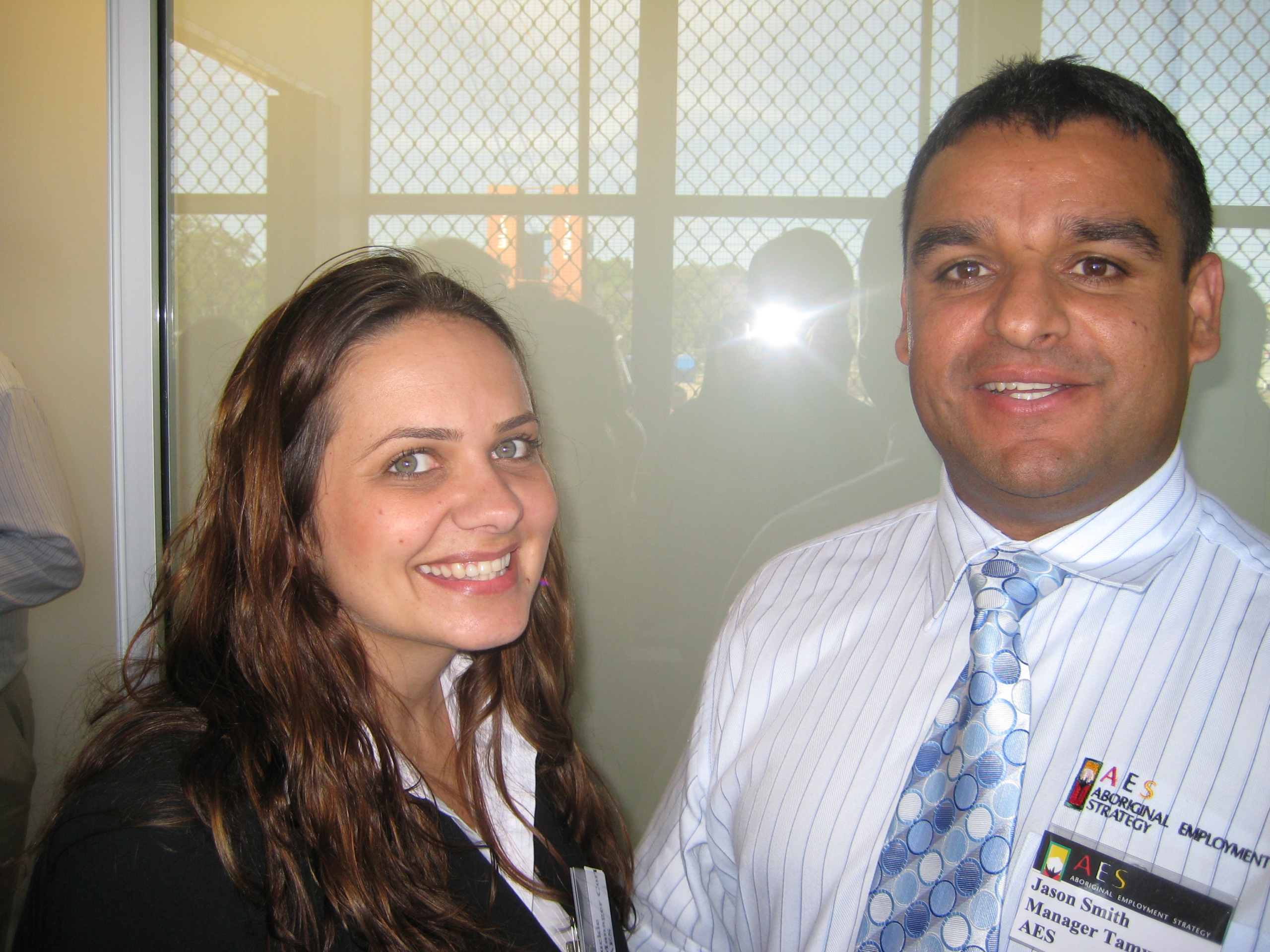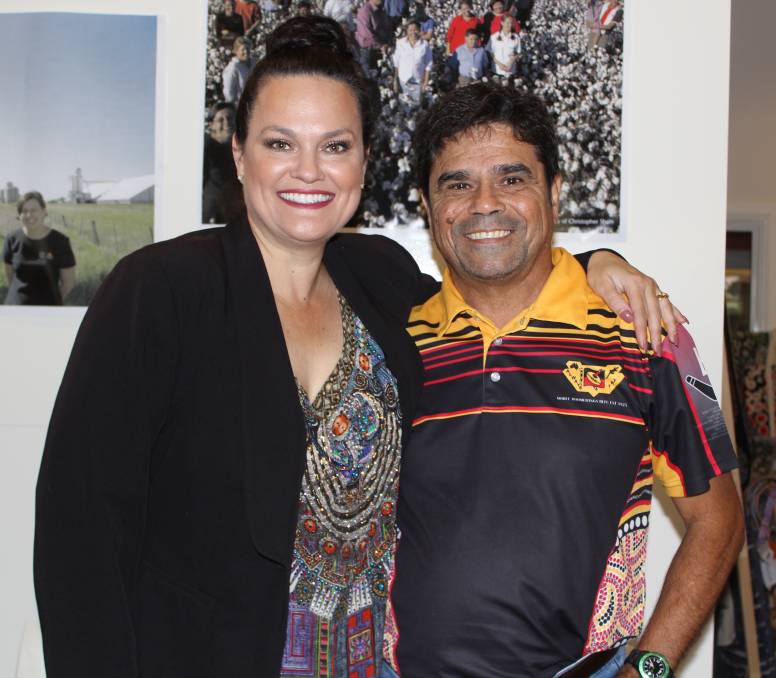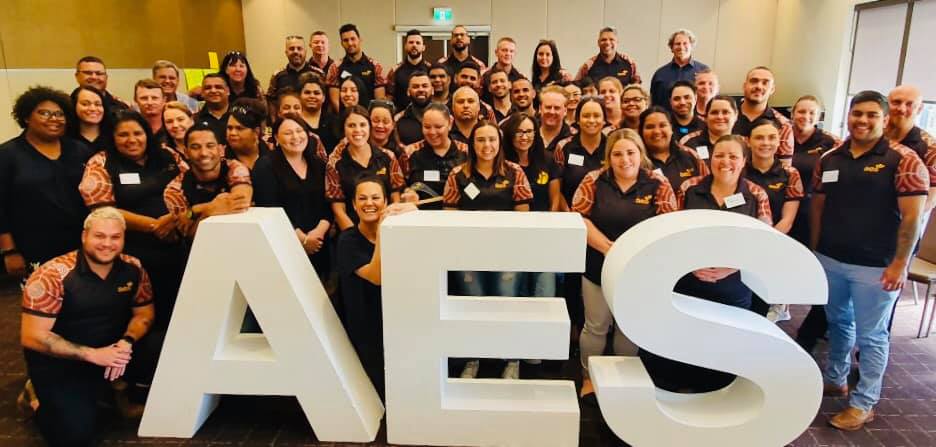Picture above: Cathy Duncan, Founding CEO of AES, and Dick Estens, AES Founder, in Moree 1997
It was in the early 1990’s that what could be described as an unlikely alliance was formed between the local Aboriginal Kamilaroi people and the cotton industry in New South Wales’ cotton heartland of Moree. It was a formidable partnership brokered in a time of severe community breakdown and despair that sewed a seed that grew a strong Aboriginal and Torres Strait Islander employment and group training company known today as the AES.
Dick Estens, key Aboriginal leaders and the Gwydir Valley Cotton Growers Association made history when they put their heads together and hatched a game plan that would change the face of Moree and the cotton industry. Little did they know that it too would change the face of race relations in this country and deliver the most successful national Aboriginal and Torres Strait Islander employment company in Australia which today delivers a sizeable portion of the country’s Aboriginal and Torres Strait Islander employment placements.
Since the establishment of the AES in 1997, at least 25,000 career placements for Aboriginal and Torres Strait Islander people all over the nation have been brokered by the AES. This mammoth success has been delivered under the leadership of founder of the AES, Dick Estens AO.
“AES is a relationship company that builds people up – we empower people to make change through building self-esteem and a sense of purpose. Supporting people into a job and a career, builds pride, passion and commitment and creates a wildfire effect in our communities where Aboriginal people are positively influencing other Aboriginal people,” says Estens.
In February 1997, the AES opened its red, black and yellow doors manned with passionate, talented local Aboriginal people ready to work with employers and local Aboriginal and Torres Strait Islander people to create sustainable career opportunities.
“The key to this strategy was simple – it was about building self-esteem in the Aboriginal community. People had been disenfranchised and disempowered in this for too long – AES was here to make an impact,” says Dick Estens.
“It was clear within the first months of operation of the AES that intensive mentoring was going to be critical in ensuring Aboriginal people remained in employment. AES Aboriginal staff were investing in people, empowering people with hope, pride and the ability to take real control of their lives.”
The partnership between Aboriginal and Torres Strait Islander people and the cotton industry was symbolised through the design of the first AES logo that was a fusion of the Aboriginal flag and a cotton plant.
Early in 2000, the AES was also gathering momentum with corporate Australia delivering large scale employment opportunities in the banking sector for school aged young Aboriginal and Torres Strait Islander people. ANZ Bank was the first to come on board with the AES in 2002 to establish the first Aboriginal and Torres Strait Islander based traineeships in Australia. Commonwealth Bank, NAB and Westpac soon followed. The traineeships enabled Aboriginal and Torres Strait Islander high school students to complete years 11 and 12 whilst doing paid work one day a week at the bank and completing their HSC. Today, the AES’ traineeship program has been replicated across the country and remains its flagship program.
20 years on, the AES is cottoning on strong with 13 office locations from Sydney to Darwin made up of talented, passionate, skilled local Aboriginal and Torres Strait Islander people and delivering over 1,500 career placements for Aboriginal and Torres Strait Islander people in every industry, sector and level each year. More than 150 young Aboriginal and Torres Strait Islander people complete school based and full-time traineeships and apprenticeships each year. The AES employs over 80 full-time Aboriginal and Torres Strait Islander people to operate its offices and practices what it preaches when it comes to empowerment. AES invests strongly in its own Aboriginal and Torres Strait Islander workforce by training its teams in how to run an effective business and provides mentoring and training to its teams. Through the unique Labour Hire model AES also supports a large casual contingent workforce across the country to meeting the demands of employers.
Intensive Aboriginal and Torres Strait Islander mentoring and support remains a key ingredient in the AES success story.
“The AES has come a long way from being a small employment project established in Moree in 1997, to quickly being the leader in Indigenous employment in Australia,” Estens said.
Under the strong leadership of the AES Managing Director, Kristy Masella, an Aboriginal entrepreneur from Central Queensland who was named as one of the 100 Most Influential Women in Australia in 2016, the AES is moving confidently into a new era. AES is showing leadership and innovation in designing and delivering high-impact, intensive pre-employment programs in targeted industries that focus on getting Aboriginal and Torres Strait Islander people job-ready with basic skills and career ready with life coaching, role modelling, yarning circles, mentoring and intensive support and access to culture. AES has also grown its Labour Hire business by 500% and in two years and developed a comprehensive suite of consultancy services such as professional recruitment, Aboriginal Cultural Respect Training, Professional Mentoring and RAP development.
The AES is a not-for-profit Aboriginal and Torres Strait Islander organisation and charity and Supply Nation registered. It also built and operates a nationally recognised Art Gallery (Yaama Ganu) and Café (Café Gali) in Moree that is focused on community development, economic empowerment of regional and remote Aboriginal and Torres Strait Islander communities and the celebration of Aboriginal and Torres Strait Islander culture. Visit the website to view the breath-taking works of art for sale.




